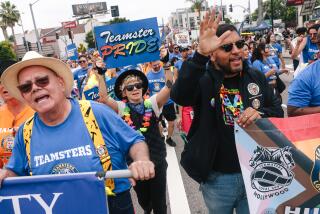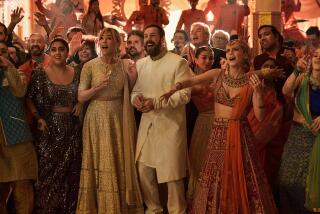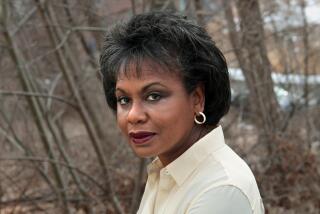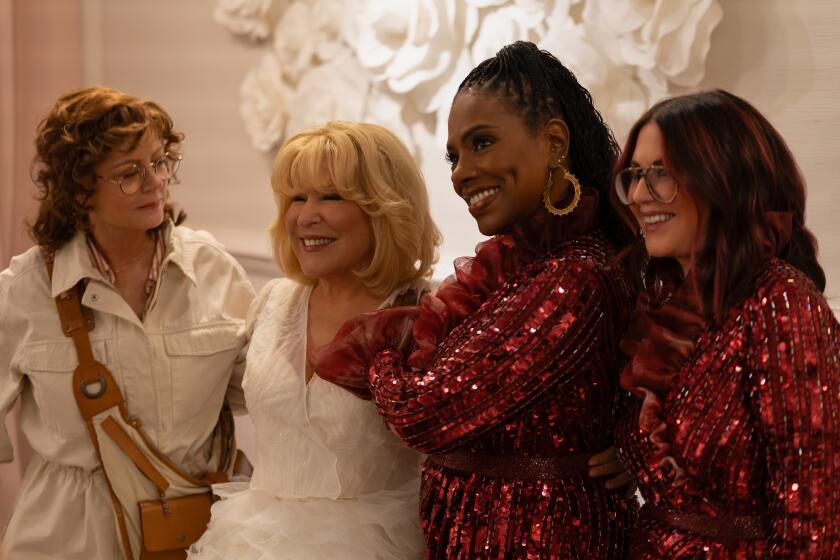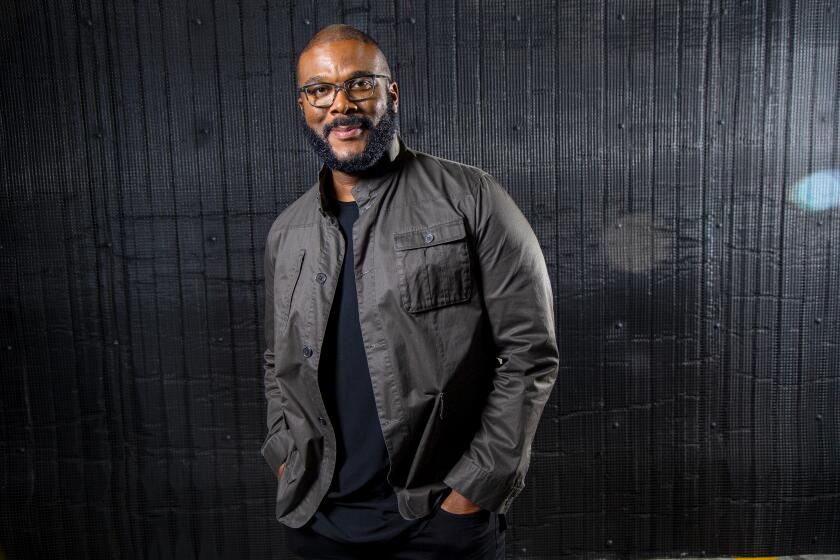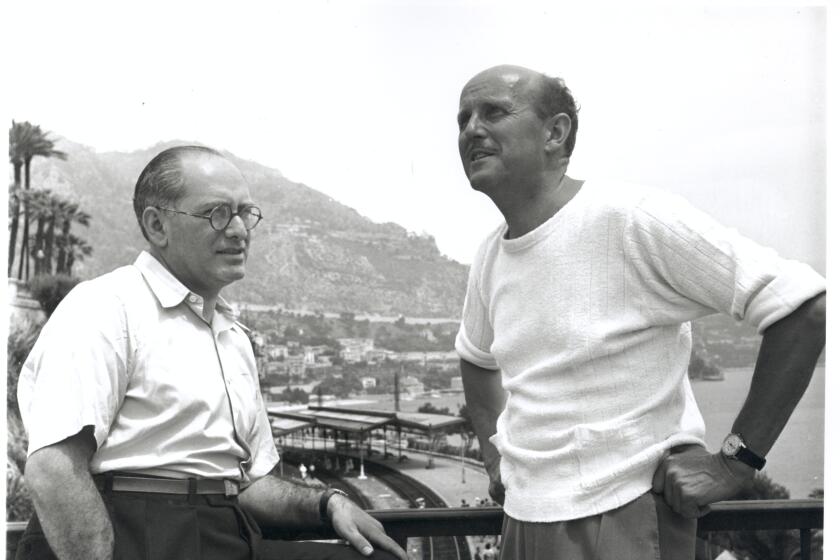Hollywood leaders put aside rivalries to take on the industry’s lack of women
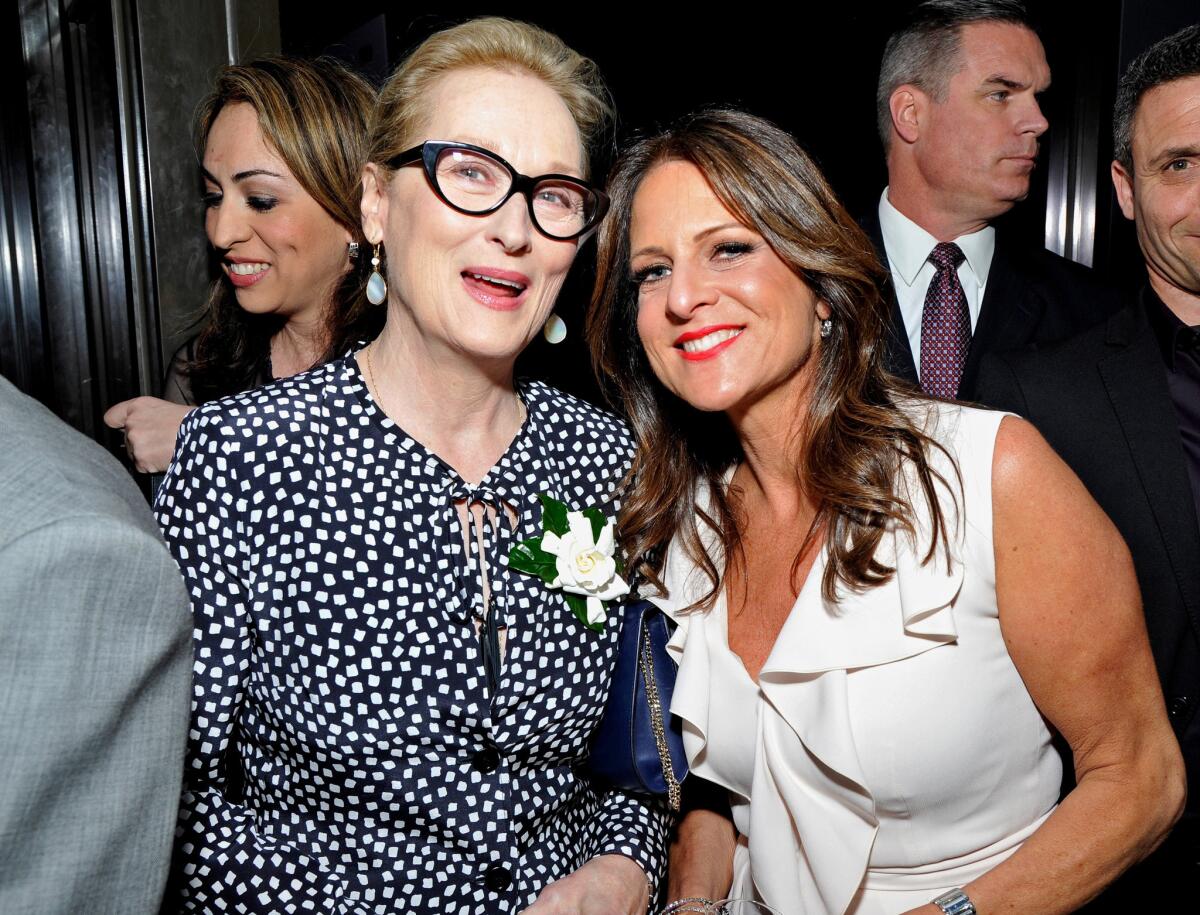
The gathering of entertainment leaders was organized by Women in Film and the Sundance Institute. Above, Cathy Schulman, president of Women in Film, with Meryl Streep at a pre-Oscar party in February.
Usually it takes a fundraising politician or a glittering awards show to convene competing studio executives and Hollywood agents in one room in Los Angeles.
But for two days this fall, a group of 44 entertainment industry leaders gathered quietly, turning off their phones and setting aside their rivalries to tackle an increasingly visible problem in their business: the lack of women both in front of and behind the camera.
The private meeting, one of the first attempts by Hollywood decision makers to grapple with gender bias as a group, came as federal investigators conduct a probe into possible gender discrimination in Hollywood. After two days studying the issue, participants concluded with agreement on a series of steps, including developing a seal of approval to recognize studios and networks that show progress.
SIGN UP for the free Indie Focus movies newsletter >>
“People who normally spend all day long trying to screw each other were in there together trying to figure out this gender issue,” said Cathy Schulman, head of production at STX Entertainment and president of Women in Film, a nonprofit advocacy group. “This is not a shaming process. We’re not saying, ‘You’re the bad guys.’ We’re saying, ‘This is your situation. We’ve been doing it the same way for so long. We need to retrain our brains.’”
The gathering at the Pacific Design Center in West Hollywood on Oct. 14-15 included executives from Warner Bros., Lionsgate, Marvel, HBO and DreamWorks Animation, as well as agents from Creative Artists Agency, William Morris Endeavor and United Talent Agency. It was organized by Women in Film and the Sundance Institute, a nonprofit that promotes independent film.
“We were all seeing the same statistics year after year about how women were faring behind the camera,” said Keri Putnam, executive director of the Sundance Institute. “We said, we’ve got a lot of info here, and it’s time to take some steps. The idea was to learn about what’s worked in other fields.”
In recent months, several high-profile complaints about gender bias from inside and outside Hollywood have drawn attention to the issue. In October, actress Jennifer Lawrence published a widely circulated letter decrying the pay gap between men and women (the hacked Sony Pictures emails showed she made less than her male co-stars in “American Hustle”).
Several recent studies have shown that the hiring of women as directors and writers lags badly; and earlier this year the federal Equal Employment Opportunity Commission began contacting female directors who said they have been subject to discrimination.
“Behind closed doors, people at the studios are saying, ‘we know we have a problem,’” said Adriana Alberghetti, a partner at WME and agent who handles “Suffragette” director Sarah Gavron and “Maleficent” writer Linda Woolverton. “How do we get more women behind the camera?”
In addition to pushing to develop the seal of approval, the group agreed to advocate for new training programs at their individual companies to raise awareness of gender bias.
Participants also agreed to create a program to pair early- to mid-career female film and TV directors with advocates in the industry.
During the two days of meetings, executives also reviewed data compiled by researcher Stacy Smith at USC Annenberg School for Communication and Journalism that indicates less than 2% of 2014’s 100 top-grossing films had a female director. Just 21% had a female lead.
“It’s a crazy fact. It doesn’t seem rational,” said Erik Feig, co-president of Lionsgate. “It’s just bad business.”
FULL COVERAGE: Hollywood’s gender gap
Representatives from other industries, including finance and technology, spoke about the purchasing power of women and the impact of bias on decision-making. Several of the meeting’s attendees singled out a discussion led by Judith Williams, who spearheaded a training program at Google and is currently at Dropbox, as provoking introspection.
“Most of the people I know in the business want to do the right thing and think of themselves as progressive, yet those statistics are what they are,” said Mike De Luca, who is producing the “Fifty Shades of Grey” film series for Universal. “Human beings are hard-wired to seek out others who are like us. It made us all look at that as a presence in our lives. Do I seek out other white men?”
Those attending also included directors Catherine Hardwicke and Kimberly Peirce, “Orange Is the New Black” creator Jenji Kohan, “Hunger Games” producer Nina Jacobson, former Academy President Sid Ganis and Writers Guild of America President Howard Rodman.
De Luca said he walked away from the meeting committed to asking agencies and management firms to submit lists of potential directing candidates for his films that are 50% women.
“People say there aren’t enough women directors to choose from,” said De Luca, who hired a woman, Sam Taylor-Johnson, to direct the first “Fifty Shades of Grey” film. “That’s a straw dog argument. There are plenty of candidates. You have to look in independent film, in commercials. They’re there.”
Alberghetti said she followed up by procuring meetings for four female directors and three female writers on upcoming “Star Wars” films.
Before Lionsgate, Feig was an executive at Summit Entertainment when that company released “The Hurt Locker,” the 2009 war movie for which Kathryn Bigelow became the first woman to win the directing Oscar, and the “Twilight” films, which helped establish the box office potential of female audiences.
“Why do you rob banks?” Feig said, quoting criminal Willie Sutton. “Because that’s where the money is. This isn’t just the right thing to do morally and socially, it’s the right thing to do from a capitalistic perspective.”
ALSO
‘Smile!’ How a villain’s phrase in ‘Jessica Jones’ exposes modern-day sexism
Mark Zuckerberg and Priscilla Chan pledge to donate 99% of their Facebook shares
Kim Kardashian turns baby in breech procedure: ‘Probably more painful than childbirth’
More to Read
Only good movies
Get the Indie Focus newsletter, Mark Olsen's weekly guide to the world of cinema.
You may occasionally receive promotional content from the Los Angeles Times.
